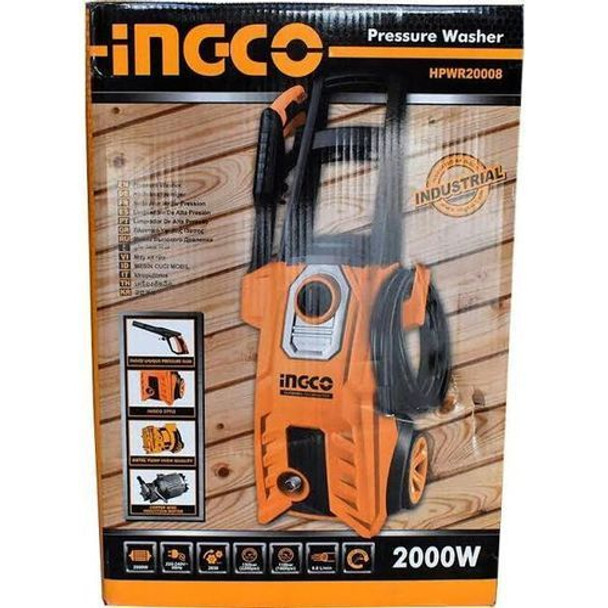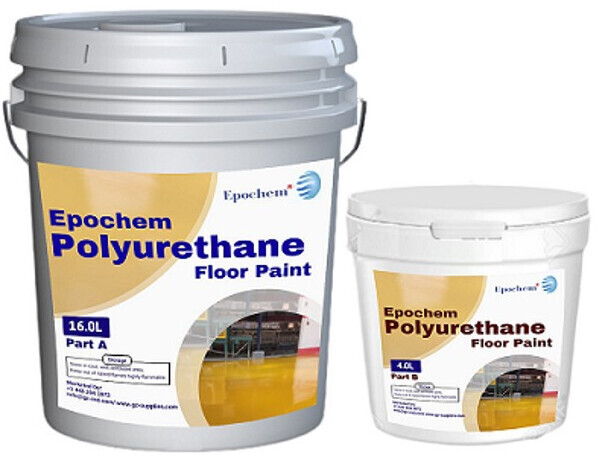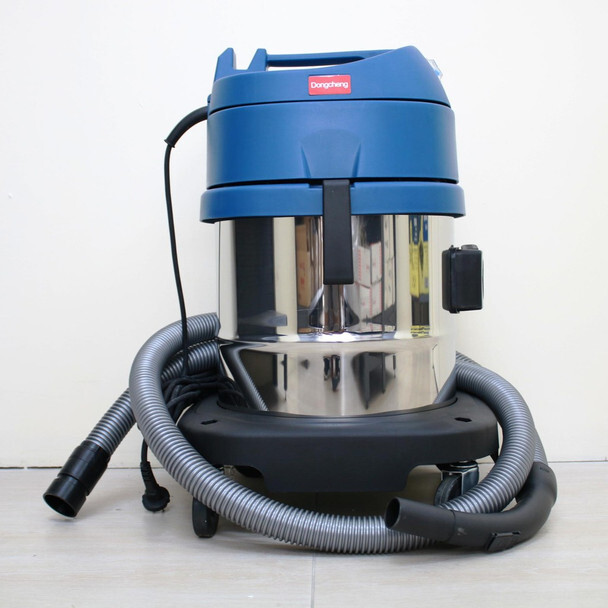Industrial Floor Paint: Maintenance Tools and Techniques
Introduction
Industrial floor paint plays a crucial role in enhancing durability, safety, and aesthetics in manufacturing plants, warehouses, garages, and commercial spaces. However, maintaining these painted surfaces can be challenging due to heavy machinery, constant foot traffic, chemical spills, and environmental factors.
Proper maintenance tools and techniques help extend the lifespan of industrial floor coatings, reduce repair costs, and ensure a safer working environment. This guide explores the common causes of floor paint damage, the best maintenance tools, and effective maintenance techniques to keep industrial floors in optimal condition.
Read more...Floor Paint Maintenance: Industrial Equipment You Need
Key Takeaway
- Proper Maintenance Extends Paint Lifespan – Regular cleaning and timely touch-ups prevent premature wear and peeling, ensuring long-lasting floor coatings.
- Essential Tools Are Crucial – Using industrial-grade tools such as floor scrubbers, pressure washers, and industrial vacuums enhances maintenance efficiency.
- Regular Cleaning Prevents Damage – Sweeping, mopping, and using mild detergents protect the paint from dust, debris, and chemical spills, maintaining its durability.
Common Causes of Industrial Floor Paint Damage
Heavy Machinery & Foot Traffic
- Forklifts, vehicles, and heavy equipment exert continuous pressure, leading to paint wear and peeling.
- High-traffic areas experience surface abrasion, causing fading and thinning of floor coatings.
Solution: Use protective mats in high-impact zones and apply sealants for extra durability.
Chemical Spills & Stains
- Industrial floors often encounter oil spills, solvents, grease, and cleaning chemicals, which can weaken paint adhesion.
- Acids, alkaline cleaners, and petroleum-based products erode coatings, leading to discoloration and peeling.
Solution: Clean spills immediately with absorbent pads and pH-neutral cleaners to prevent damage.
Moisture & Environmental Factors
- High humidity, water leaks, and extreme temperature changes can weaken paint coatings, causing blistering and cracking.
- Poor drainage leads to water pooling, which degrades the floor’s protective layer over time.
Solution: Ensure proper ventilation and use moisture-resistant coatings to protect the floor.
Poor Maintenance Practices
- Harsh scrubbing, strong solvents, and abrasive brushes can strip the floor paint instead of cleaning it.
- Ignoring small cracks and chips allows damage to spread quickly, leading to costly repairs.
Solution: Use gentle but effective cleaning tools and repair small cracks immediately with epoxy fillers.
Ingco High Pressure Washer 2000W
Essential Tools for Maintaining Industrial Floor Paint
Floor Scrubbers & Sweepers
Regular cleaning prevents dirt buildup and extends the life of the floor coating.
Best Tools:
- Automatic floor scrubbers – Ideal for deep cleaning large industrial spaces.
- Industrial sweepers – Remove dust and debris that cause surface scratches.
Tip: Choose a soft-bristle attachment to avoid damaging the paint finish.
Non-Abrasive Cleaning Tools
Harsh cleaning tools wear down coatings faster.
Best Tools:
- Soft-bristle brooms & microfiber mops – Prevent surface scratches.
- Squeegees – Help clear water and chemical spills efficiently.
Tip: Use pH-neutral floor cleaners to maintain the integrity of the paint.
Protective Floor Mats & Sealants
Adding protective barriers helps prevent wear and tear in high-traffic areas.
Best Options:
- Anti-fatigue mats – Reduce floor paint erosion in standing work areas.
- Sealants & topcoats – Provide an extra protective layer against spills and heavy machinery.
Tip: Apply a fresh coat of sealant every 12–18 months for long-lasting protection.
Spill Containment & Absorbent Pads
Quick spill response prevents staining and coating damage.
Best Tools:
- Oil and chemical absorbent pads – Quickly soak up liquid spills.
- Spill containment kits – Essential for hazardous liquid cleanup.
Tip: Keep spill kits easily accessible in areas prone to chemical spills.
Touch-Up Paint & Repair Kits
Even with proper maintenance, small cracks, chips, and worn-out areas can appear over time. Regular touch-ups prevent minor issues from spreading and ensure floor longevity.
Best Options:
- Epoxy fillers – Ideal for sealing small cracks and preventing further damage.
- Re-coating solutions – Used for reapplying paint in high-traffic areas.
- Patch repair kits – Quick fixes for damaged spots and minor wear.
Tip: Conduct routine inspections and touch up worn areas every 6–12 months to avoid costly reapplications.
Epochem Polyurethane Floor Paint
Industrial Floor Paint: Essential Maintenance Tools & Techniques

Read more...Floor Paint Safety: Precautions to Take When Painting Your Floors
Best Techniques for Maintaining Industrial Floor Paint
Regular Cleaning & Sweeping
Keeping the painted surface clean prevents grit and dirt buildup, which can scratch and weaken coatings over time.
Best Practices:
- Sweep floors daily using soft-bristle brooms or industrial sweepers.
- Use microfiber mops for light cleaning without damaging the surface.
- Perform deep cleaning weekly using pH-neutral floor cleaners.
Tip: Avoid using high-pressure water jets as they can strip away floor coatings over time.
Using the Right Cleaning Solutions
Certain industrial cleaners contain harsh chemicals that can erode paint finishes, leading to early deterioration.
Best Cleaning Solutions:
- pH-neutral cleaners – Safe for epoxy and polyurethane-coated floors.
- Non-abrasive degreasers – Effective for removing oil stains without damaging paint.
- Specialized floor coating protectants – Enhance paint longevity and reduce surface wear.
Avoid: Bleach, ammonia, and acid-based cleaners as they can strip protective coatings.
Preventing & Repairing Floor Damage
Small cracks and chips can expand if left untreated, leading to widespread damage.
Best Practices:
- Inspect floors monthly for small cracks or peeling paint.
- Use epoxy crack fillers for quick patching.
- Apply protective mats in high-impact areas to reduce wear and tear.
Tip: A well-maintained floor coating can last up to 10 years with proper care.
Managing Spills & Chemical Exposure
Industrial environments often experience accidental spills, which can weaken floor coatings and cause discoloration.
Best Practices:
- Use spill trays and containment mats under machinery and workstations.
- Clean spills immediately with absorbent pads and neutralizing solutions.
- Apply protective sealants to make cleaning easier and prevent chemical absorption.
Tip: Keep a spill response plan in place to handle hazardous liquids safely.
Scheduled Floor Recoating & Refinishing
Over time, industrial floor paint wears down, requiring recoating to maintain durability and aesthetics.
Recoating Schedule:
- Light traffic areas: Recoat every 2–3 years.
- High-traffic areas: Recoat every 12–18 months.
- Heavy machinery zones: Recoat annually for maximum protection.
Tip: Always clean and lightly sand the floor before reapplying new coats for better adhesion.
Dongcheng Vacuum Cleaner 1200W/15L DVC15
Frequently Asked Questions
1. What are the essential tools needed for industrial floor paint maintenance?
To properly maintain industrial floor paint, you need tools such as floor scrubbers, pressure washers, paint rollers, industrial vacuums, and touch-up brushes. These tools help ensure regular cleaning, reapplication, and preservation of the paint’s durability.
2. How often should industrial floor paint be maintained?
The frequency of maintenance depends on foot traffic, exposure to chemicals, and environmental conditions. Generally, cleaning should be done daily or weekly, with repainting or touch-ups scheduled every 6–12 months for optimal durability.
3. What is the best way to clean painted industrial floors?
Use a mild detergent solution and a floor scrubber or mop to clean dust and debris. For heavy-duty cleaning, a pressure washer or an industrial vacuum may be necessary, depending on the type of contaminants. Avoid harsh chemicals that may degrade the paint.
4. How can I prevent industrial floor paint from peeling or wearing out quickly?
Proper surface preparation before painting, using high-quality industrial floor paint, and regular cleaning will help extend the life of the coating. Additionally, applying a protective sealant or topcoat can enhance durability.
5. Where can I find high-quality maintenance tools for industrial floor paint?
You can find reliable industrial floor maintenance tools and equipment at GZ Industrial Supplies, offering a wide range of cleaning and repair solutions for industrial floors.
Related Articles
The Science of Floor Paint: How it Works and What to Expect
The Ultimate Guide to Preparing Your Floor for Painting with Floor Paint
How to Choose the Right Floor Paint: Tips for Durability and Aesthetics
Conclusion
Maintaining industrial floor paint requires the right tools, techniques, and regular upkeep to preserve the integrity and appearance of the surface. By investing in proper cleaning equipment, scheduling routine maintenance, and using high-quality floor coatings, you can extend the lifespan of your industrial floors and enhance workplace safety.
For the best maintenance tools and industrial floor paint solutions, visitGZ Industrial Supplies and explore our wide range of premium products for industrial applications. Keep your floors in top condition with the right equipment today!
Recent Posts
-
The Ultimate Guide to Understanding the Difference Between Ethylene Glycol and Propylene Glycol
Introduction Glycols are versatile compounds widely used across various industries, from automotive …Apr 16, 2025 -
What are Agricultural Machinery
Introduction Agricultural Machinery is also used to improve the wide range of production prac …Apr 14, 2025 -
The Best Electrical Wire in Nigeria 2025 (Updated)
Introduction Electrical wires are the basic unit of every electrical system. Electrical wires …Apr 14, 2025







